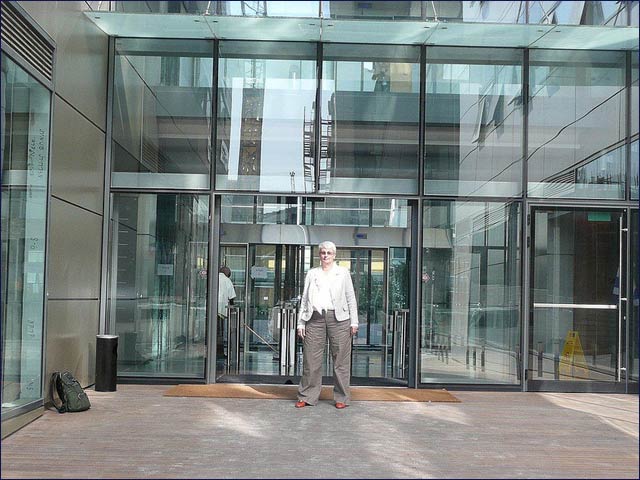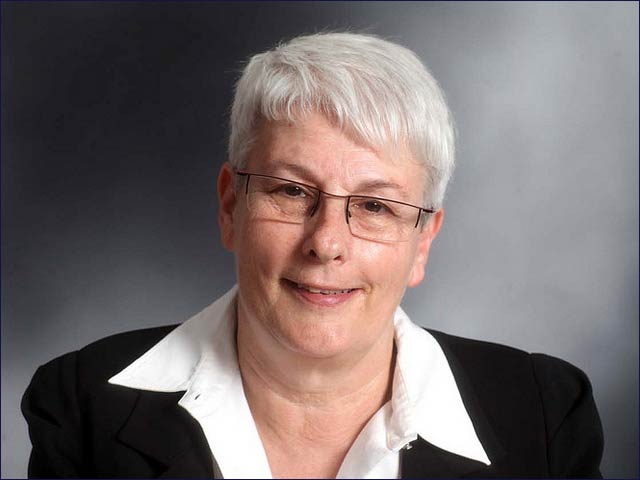By Rivka Borochov
Israel boasts the largest number of PhDs per capita of any country in the world. Its engineers are highly sought after globally, and all the major telecommunications and Internet giants from Intel to IBM, Google to Apple are opening R&D centers and hubs of excellence to tap into Israel’s talented engineering resource pool. With ears and eyes on the ground, the global firms are first in line when they find an Israeli startup worth acquiring.
EMC, a US-based global IT Fortune 500 company specializing in information security, big data storage, processing infrastructure and now cloud computing, sees Israel as a major force for its success. Israel proved itself after 9/11 - particularly in making banking transactions more secure - and now EMC is looking to Israel to improve its cloud computing technologies.
Cloud computing is an IT movement that takes information typically stored on a physical server and moves it to a network as a metered service. For instance, cloud computing allows you to check your emails on a variety of devices and from a number of locations. EMC is currently working on about six cloud computing projects in Israel.
In December 2011, EMC inaugurated a new building for the Center of Excellence facility in Herzliya, a city north of Tel Aviv, to unite its Israeli acquisitions and innovations. This followed the opening of an EMC R&D center in Beersheva (with Israeli government backing), a continuation of EMC’s entry in Israel that began in 1996 when the company first opened a sales and services operation in Tel Aviv. About 1,000 Israelis now work for EMC in Israel, with engineers, innovation and sales support staff dispersed across Herzliya, Beersheva and Petah Tikvah.
To celebrate the inauguration of the new Center of Excellence (COE) facility, EMC's CEO and chairman, Joe Tucci, arrived in Israel for his first visit, accompanied by RSA Division President Tom Heiser and Sanjay Mirchandani, chief information officer and chief operating officer at EMC Global Centers of Excellence.
The new COE consolidates EMC’s Israeli research and development, which was previously handled at various locations in the central region of Israel. It joins a global network of EMC COEs in the United States, China, Egypt, India, Ireland, and Russia focusing on security, virtualization, information management and enterprise content management.
The new Center of Excellence will combine the know-how and tools of several Israeli companies acquired by EMC in 2006.
Israeli startups that were acquired and assimilated by EMC include Kashya data replication and CDP (continuous data protection) solutions;
nLayers software for the automatic detection and mapping of various applications running on computing systems;
ProActivity software solutions for analysis and automatic processing of business processes; and
Zettapoint database optimization solutions
Some of EMC’s Israeli investments, such as
Kashya, have panned out globally, multiplying sales assets by a factor of 10. Others have fit in nicely with EMC's 50,000-strong global workforce, helping to keep the data of banks and biotech firms secure and backed up.
Israel aided post-9/11 recovery
Without the contribution of Israeli innovations to EMC, the world post-9/11 might look a little different today. EMC Israel's input led to significantly better disaster management, says Orna Berry, a founding member of the Israeli high-tech industry. Berry is an EMC corporate vice president and general manager of the Center of Excellence in Israel since January 2010.

Orna Berry in front of the Herzliya EMC Center of Excellence“With regard to information security innovations, it was recently announced that RSA, the security division of EMC, shut down over 500,000 cyber attacks across 185 countries. That translated to an estimated $7.5 billion in savings for financial institutions,” Berry reveals.
Israeli innovation, she points out, has been critical in maintaining data integrity during disaster recovery. This means the ability to both store and maintain a high quality of data that may need to be recovered –– a situation faced by many companies in the wake of 9/11, when their servers melted down.
“The companies that had backup systems and disaster recovery systems from EMC were the first to come back online,” she says. Helping mega-firms return to a sense of normalcy was possible as a result of “the integrity and architecture of the systems developed by Israeli engineers.”
According to Berry, Israelis are good at devising sophisticated algorithms that compress and save the integrity of data in distributed computing. This field requires a fine balance of math and computer science.
EMC-Israel partnership began three decades ago
Berry credits the serial Israeli entrepreneur Moshe Yanai, who worked for EMC in Massachusetts in the late 1980s, with steering the business from a memory extension company to a storage leader.
Yanai helped create a new market segment at EMC, says Berry. In particular, he worked on developing the EMC Symmetrix, believed to be the most successful storage system for computers today.
EMC has a solid history with Israeli technology, says Berry. “From a historical perspective, EMC is tied to Israel, and appreciates and respects Israeli innovation,” she says.
Orna Berry – Computer science pioneer
Born in Jerusalem in 1949, Orna Berry studied math and statistics and received her BSc and MA at the University of Haifa and Tel Aviv University, respectively.

Orna Berry, VP at EMC In 1977 she moved to the United States to continue her studies. Berry, today a mother of three and grandmother of four, earned a PhD in computer science at the University of Southern California (USC).
While in California, Berry brushed elbows with the most famous computer scientists in the world, including professors Len Kleinrock from UCLA, who developed the precursor to the Internet, Jerry Estrin from UCLA, who built the first computer outside the US and the UK (the Weizac at Israel’s Weizmann Institute), as well as Len Adelman from USC (Adelman is the “A” in RSA, the best-known public key cryptography algorithm), computer science author Ellis Horowitz and machine vision expert Gerard Medioni.
Interface of computers and life science
Berry held off joining the Israeli computer science industry until she felt it was mature enough. “I knew the time would come,” she says, “and I wanted to join the ‘forces’ when it was getting to be more fun.”
Growing up in computer sciences when the field was still embryonic was something she calls "amazing." According to Berry, the field never excluded women. Instead, she believes it was quite the opposite. Today she is in touch with female friends from college who have similarly moved on to senior management positions.
Berry says that success is “still dependent on the individual’s desire and the will of the woman. There is no structure that makes women’s lives easier in [computer science] in Israel.”
During the exciting 10 years she spent in the US, Berry had a fellowship at the RAND Corporation, and then worked at the Systems Development Corporation, later acquired by Burroughs and merged with Sperry to form UNISYS.
“When I first came to the States I wasn't planning on pursuing computer science. I was trying to work in a way that was feasible in genetics and computing, trying to work on models in medicine related to genetic evolution,” says Berry. “The computing systems were insufficient at the time.”
Today she is helping develop the tools to handle complicated and massive sets of data –– Big Data.
Computers won’t replace brains
“The question of where chemistry, physics and biology intersect with computers is a very important research topic,” she says. Through her work over the years, most notably as the only woman to serve as chief scientist of the Israeli Ministry of Industry, Trade and Labor, she was able to plug her know-how into both the high-tech and biotech industries of Israel.
Despite her vast experience with computers, Berry still believes that "computers are not a replacement for the human mind. However, they can help analyze massive amounts of data to see if any results found in science, for instance, are replicable.”
Much loved and lauded in the research community in Israel, Berry has more than 25 years of entrepreneurial experience in the science, computer science, high-tech and venture capital industries, and is celebrated as a woman who knows how to promote innovation in Israeli society.
Lightning through the clouds
Today, EMC in Israel is working on the development of flash storage technology, by means of a new project called Lightning, based on cloud computing. As the head of EMC in Israel, Berry will be steering her team skyward, taking some of the best engineering brains in Israel into the future of cloud computing.